Facts in Judaism
A Fascinating Overview of Ukrainian Jewry: Everything You Wanted to Know
Explore the rich tapestry of Jewish history in Ukraine - from persecution to revival
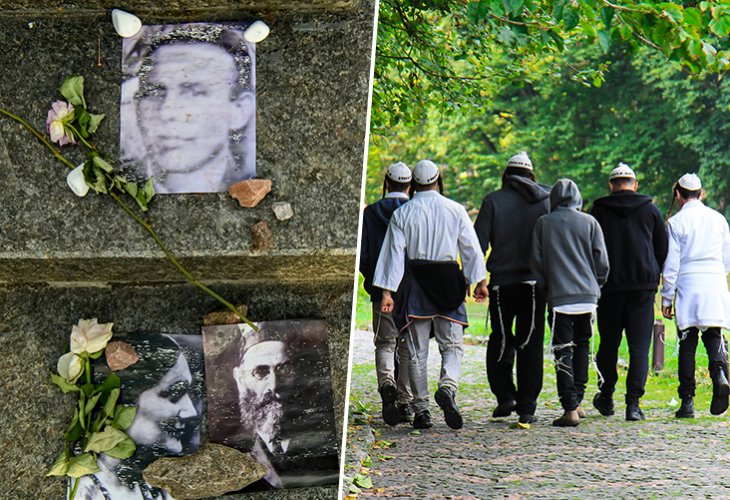 (Photos: shutterstock)
(Photos: shutterstock)A great Jewish revival exists in Ukraine today. Chabad emissaries, Breslov Hasidim, Karlin Hasidim, as well as Lithuanian Jews, conduct extensive activities that include strengthening Jewish education and opening institutions such as schools and mikvahs (ritual baths).
Today, over 100,000 Jews live in Ukraine. The largest community in Ukraine is the Jewish community of Kyiv, which includes over 50,000 Jews. There are also 3 relatively large communities in Dnipro, Odessa, and Kharkiv, each estimated to have about 25,000 Jews. Beyond this, there are smaller communities in cities and towns like Berdychiv, Zhytomyr, Mykolaiv, Cherkasy, Lviv, Chernivtsi, Kherson, Donetsk, and Uman. Dozens of Jewish schools operate daily. In Kyiv, there are six schools, three of which are affiliated with Chabad. The city also has a branch of the "Aish HaTorah" yeshiva.
Rabbi Israel Goldwasser, an expert historian, describes the blood-soaked history of Ukrainian Jews. "There is a great Jewish awakening in Ukraine," says Rabbi Goldwasser. "Ukraine was the only country in Europe that had so much Judaism. And even those who are distant from Judaism, it's not their fault, it's Stalin's fault.
"Ukrainian Jewry was trampled three times," Rabbi Goldwasser surveys. "The three great blows that the Jewish people suffered in recent history are the Enlightenment, Nazism, and Communism - and Ukrainian Jews suffered all three of these blows together. Today, they are drawn to the light with bonds of love, there is so much light, so many prayers, and outreach in Ukraine today.
"Most Ukrainian Jews, even those who are distant, feel a sense of self-sacrifice. If a Ukrainian Jew comes to the synagogue today - it means that his father sacrificed himself for Judaism. It means that his father came with him once to pray, and the child asked his father: 'What are we doing here?', and his father replied: 'I cannot tell you, but know that we are Jews'. These stories are the heritage stories of Ukrainian Jews.
"It's an amazing Judaism, a Judaism of self-sacrifice without conditions and without possibilities. In recent decades, Jews have been discovering Hashem and being drawn after Him, and many such Jews are currently in great fear," Rabbi Goldwasser reminds us, "and we pray for their tranquility and their lives, and that they return to their homes in peace."
"During the communist period, until 1988, 33 years ago, observing mitzvot was fraught with tremendous fear. It was very frightening to keep mitzvot, to come to the synagogue, or to participate in Torah classes. Each act posed a life-threatening danger. Not to mention the years of Stalin and his associates, when self-sacrifice was a daily occurrence.
Ukrainian Jewry in the Past
Rabbi Goldwasser describes the differences between Eastern Europe and Western Europe, hundreds of years ago: "In the past, Europe was divided into different powers than we're familiar with today. The great central power in Europe included Germany, France, Italy, all of central Europe, and westward, and was called: 'The Roman Empire', which began with Charlemagne - in the period of our early sages - and then we suffered greatly. All the Crusades were in their territory, and there were many expulsions and blood libels.
"The second strong additional power was the Principality of Kyiv. This is the area now called Russia and Ukraine. Until World War I, it was ruled by the Tsars - Nicholas I, Nicholas II, Tsar Alexander, Catherine - they ruled all of Ukraine and Romania, and Poland. Only the southern part of Poland, Galicia, was included in the Austro-Hungarian Empire.
"In other words: in Western Europe, our blood was shed, until the period of Napoleon, but Tsar Nicholas and the lands around him were always difficult places. Ukraine was always part of the principality, along with Russia and Belarus, and the Jews suffered greatly.
"Ukraine consolidated as a nation around the Cossacks. The Cossack rebellion, the events of 1648-1649, events of blood and fire - when Jewish blood was spilled like water, established Ukraine," notes Rabbi Goldwasser. "The infamous Bogdan Chmielnicki - is the 'hero' of Ukraine, and he is guilty of the blood of hundreds of thousands of Jews. Half an hour's drive from Medzhybizh is a large city, Khmelnytskyi, and the city is full of statues of him riding on a horse. Chmielnicki, it is important to remember, was a serial killer who, following him and the wild, ignorant Cossacks, the peasant rebellion erupted. The peasants who rebelled against the nobles poured out their anger on the Jews. During the events of 1648-1649, Jewish blood was spilled like water, with Ukraine as the center. Poland also suffered from this, and Russia too, but Ukraine was established in the events of 1648-1649, in which 200,000 Jews were killed, and some say 400,000. Ukrainians, especially villagers, were known for their sharp antisemitism.
"In 1768, riots against Jews were carried out by the Haidamaks, who were gangs of Cossacks. After these terrible riots, Rabbi Nachman of Breslov asked to be buried in Uman, where 30,000 Jews who were killed for sanctifying Hashem's name are buried, as they refused to bow before the idol. Then too, Jewish blood was spilled like water.
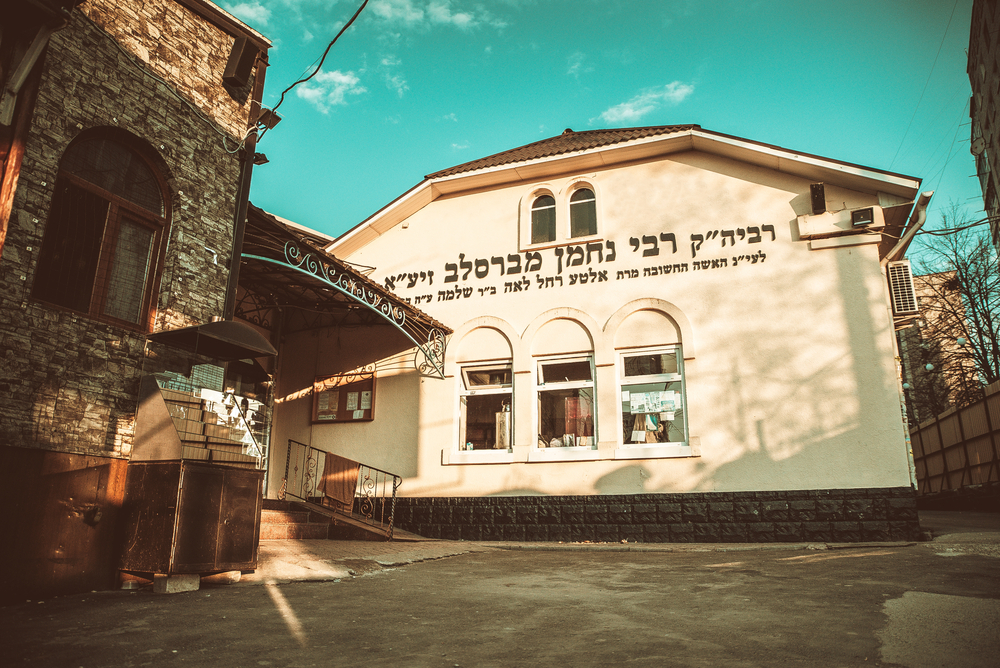 The grave of Rabbi Nachman of Breslov (Photo: shutterstock)
The grave of Rabbi Nachman of Breslov (Photo: shutterstock)After World War I, Poland became a country of its own, but Ukraine and Belarus remained part of the Soviet Union, of the large and expanded Russia under communist rule. Communism persecuted religion and Judaism, and in 1937-1938, the period of the Great Purges, Stalin killed millions in Russia and Ukraine, including a high percentage of Jews. Who were the policemen? Who was in Siberia and beat our fathers to death? They were all Russians and Ukrainians.
"The suffering of Ukrainian Jews reached its peak during World War II, when many Jewish communities were decimated, and at least 900,000 Jews were exterminated in Ukraine. During the Holocaust, Germany declared war on Russia, which included Ukraine. Germany conquered all of the area now called Ukraine and Belarus, and in that area, the great murders of the Germans began. The Germans used locals for the actual murder," explains Rabbi Goldwasser.
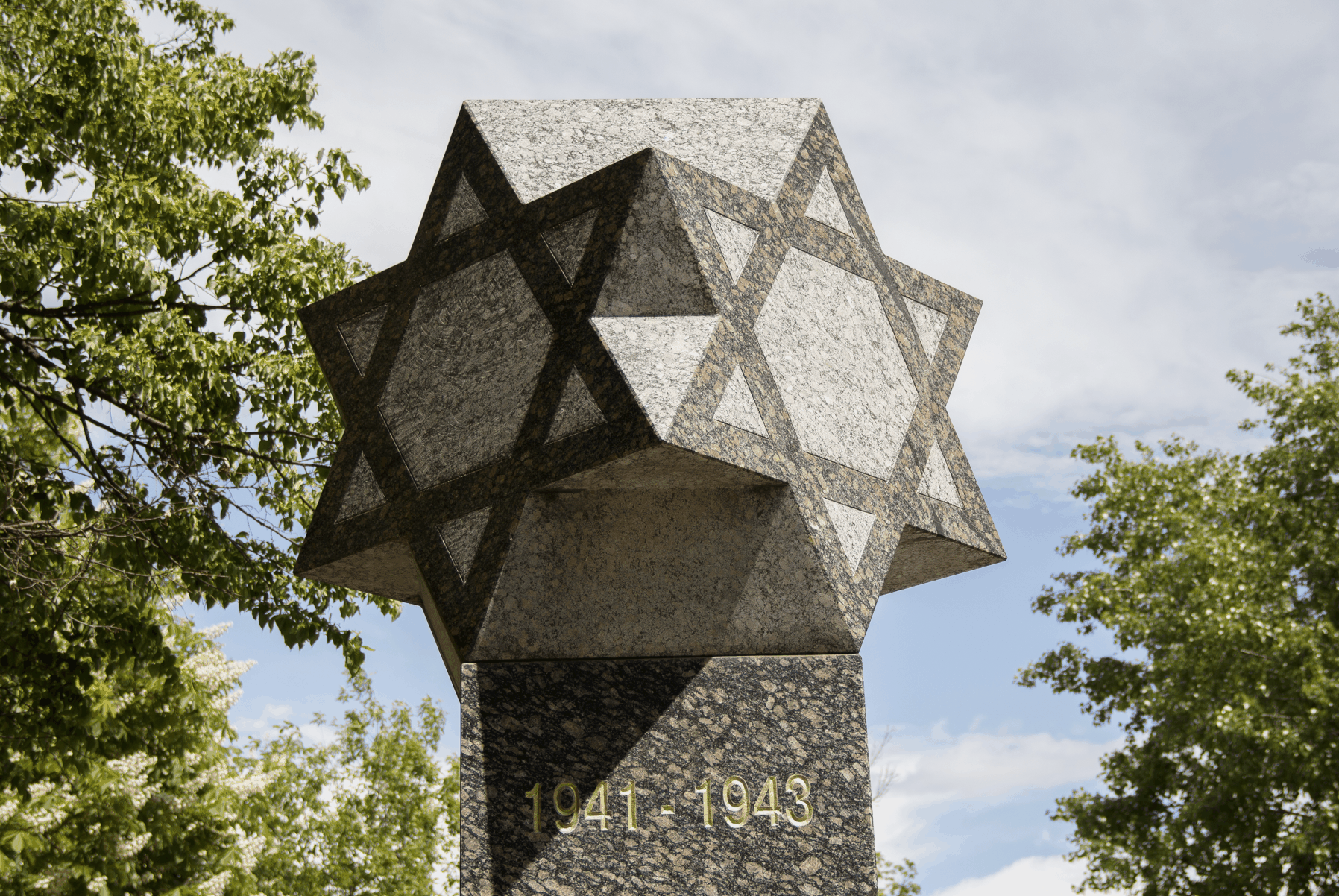 (Photo: shutterstock)
(Photo: shutterstock)Ukrainian Jews in the Holocaust
Many Ukrainian Jews were not taken to extermination camps at all. They were murdered on Ukrainian soil en masse, and their bodies were concentrated in pits by SS units and Ukrainian collaborators. First, it was reported that Jews had to gather in a certain place. From there they were led on foot for several kilometers, until they reached an area with a natural ravine - and there they were shot to death, sometimes even without pits being dug beforehand. According to the estimate, throughout Russia, there are between 2,000 and 3,000 places considered 'killing valleys'. Adjacent to almost every village that had a Jewish population, one can identify the killing valley and the mass grave in the adjacent forest. "Every city in Ukraine has a pit next to it, where all the Jews of the city were murdered. Every city," emphasizes Rabbi Goldwasser with incomprehensible pain. "Next to Kyiv is 'Babi Yar', near Odessa there is a pit in which 68,000 Jews of the city were murdered. In Medzhybizh there is a death pit, in Anipoli, in Uman, in Berdychiv, 2,000 cities throughout Ukraine have a pit next to them where Jews were murdered in the Holocaust. The Germans led the murder of course, but in practice it was done by local gentiles, who rejoiced at their fate, and looted their property - all these were Ukrainians.
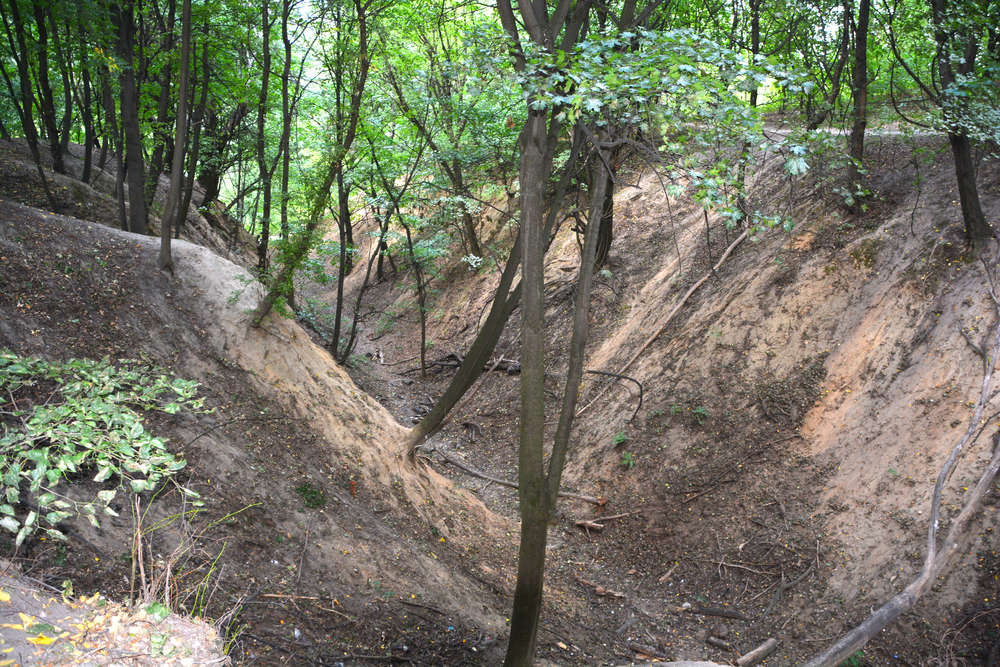 (Photo: shutterstock)
(Photo: shutterstock)"The Ukrainians assisted the German murderers, and when 3 million Russian and Ukrainian soldiers fell into captivity, they had the option to remain in a POW camp, or enlist to help in the death camps. The Ukrainians happily enlisted, and wherever there were Jews - there were 20 S.S. men and under them, 200 Ukrainians, who in practice operated the entire camp.
"Even after the Holocaust, the persecution of Judaism continued during the Communist era. Out of thousands of synagogues in Russia and Ukraine, only two remained open - one in Moscow and the other in Kyiv- all the others were locked. There were many underground prayer quorums where the Jews suffered greatly. In Ukraine, Judaism remained a hidden ember, and when the Iron Curtain fell - the Jewish lava erupted in its full force.
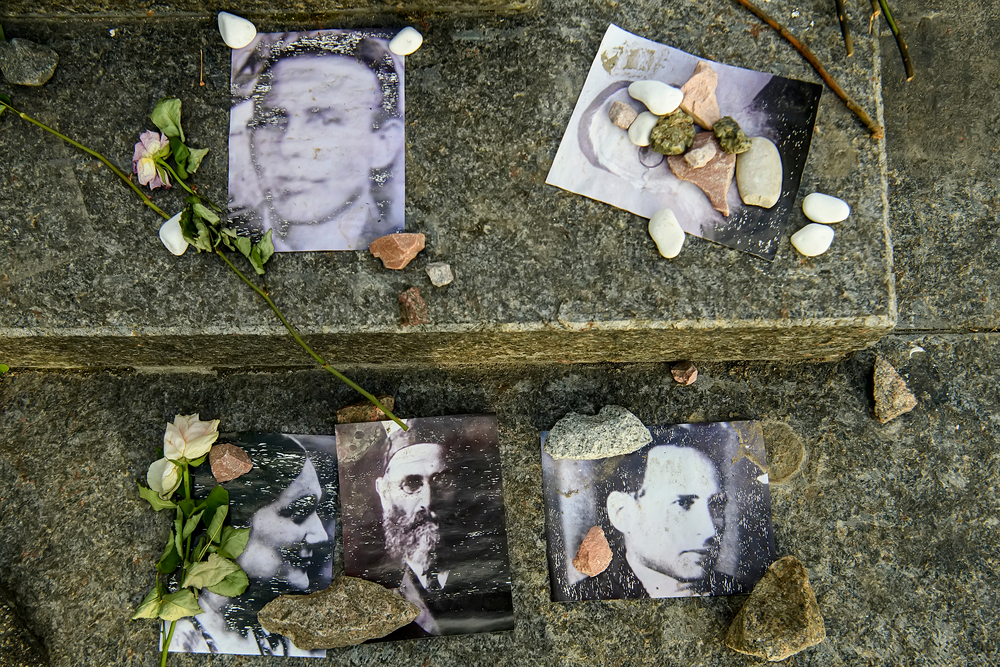 (Photo: shutterstock)
(Photo: shutterstock)"In Ukraine and Russia, 3 million Jews lived during the Iron Curtain period, and we lost most of them. Some were completely assimilated, some remained Jews - but it means nothing to them," Rabbi Goldwasser reminds. "In Israel, they suffer greatly from a finance minister who lived in a communist country. If not for Stalin, Avigdor Lieberman would be walking today with a kippah and tzitzit. It's sad. Many have disconnected, but our hope is not yet lost. These souls will return; they are all children of Israel. 'And the lost ones shall come from the land of Assyria and the banished ones from the land of Egypt.'
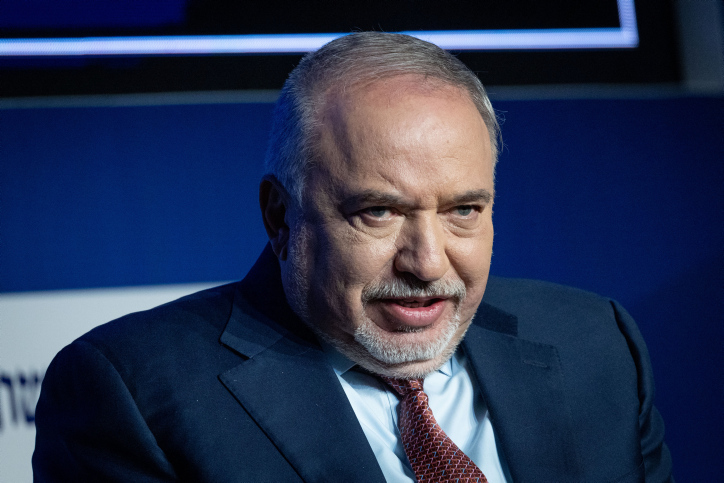 Lieberman (Photo: Jonathan Sindel / Flash 90)
Lieberman (Photo: Jonathan Sindel / Flash 90)"But there are many, tens of thousands, who are discovering their Judaism and drawn to it with unusual force. People aged 50 who request circumcision. These stories are thrilling each time anew.
"We pray that things will be better for the Jews of Ukraine. It's a very frightening time - nobody knows what Putin wants. It seemed as if wars were over. Who thought about wars in Europe with such intensity, and without any justification?! Suddenly, we went back 100 years. In history books, they wrote that 'the era of wars is over.' Once the resource was the land, the oil well. Today in the hi-tech era, the mind is the strong power. Suddenly, we discover the words of our sages that 'the best of the wicked should be killed', and 'Esau hates Jacob.'
"In the sixth [millennium] there will be voices, in the seventh there will be wars," Rabbi Goldwasser quotes the words of the Gemara (Tractate Sanhedrin page 97), 'at the end of the seventh the son of David will come.'
Let us remember that when "the voice is the voice of Jacob, the hands are not the hands of Esau". Let us strengthen the voice of Jacob - Torah and prayer - and be certain that we have no one to rely on but our Father in heaven.

